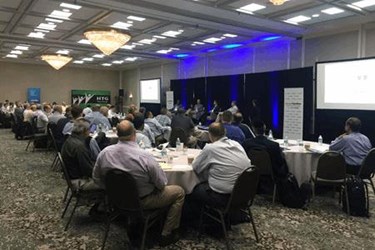Surefire MSP Strategies For Pricing, Bundling, And More

By John Oncea, Editor

Switching from the break/fix model to managed services isn’t easy, but it certainly is worth the effort. That was the message delivered by participants of the Surefire MSP Strategies For Pricing, Bundling, & More panel held as part of the Channel Transitions VAR/MSP Executive Conference held June 2 in Philadelphia.
The panel consisted of Stan Louissaint, principal and founder, Fluid Designs; Bruce Nelson, president, Vertical Solutions; Todd Schorle, president, TS Tech Enterprises; and Joe Bacino, CEO, Progression In Technology, LLC. All four panelists started as break/fix but now generate at least half of their revenue from managed services, and all four also had to overcome obstacles to get there.
Getting Started
Bacino said the most difficult obstacle to overcome was determining he initial offerings and pricing. “I overthought the process, trying to come up with the perfect plan only to realize there is no perfect plan.” Bacino figured his pricing strategy out by testing with clients, trusting them to provide honest feedback.
Schorle faced the same challenge and has raised prices three-fold since he started. “We kept adding to our plans only to find like Joe did, there’s no perfect plan. My best advice is to take whatever prices you are considering and double them before you start.”
Nelson said, outside of pricing, changing his company’s culture was his biggest challenge. We had a group that liked to feel like they were helping people, and that was easy to accomplish with break/fix. With managed services, clients don’t always know when you’re helping them and, as a result, there’s no instant gratification.”
Louissaint added, “You need to realize the break/fix client is not the same client you work with in managed services. You may have to let 80 percent of your current clients go.”
“I dreaded cutting people loose,” said Schorle. “But I recognized operationally we wanted to work with the right clients. You’ll develop a reputation as an honest business and that will make it all worth it.”
You’ll not only need to reevaluate your clients, you’ll have to take a look at your own company as well. This includes billing, time tracking, and back-end processes. Educating our people is critical as well. “What changed most was going from a reactive to a proactive mindset,” Bacino said. “We needed to change our philosophy and that was difficult.”
Panelists split on whether or not to include tiered pricing. “The gold, silver, and bronze packages are gone,” Schorle said. “We have one legacy plan and a flagship plan new clients get – that’s it.” Bacino agreed with Schorle, but Nelson said he “started with one plan, then shifted to tiers. And we’re reevaluating offerings every six months because the market changes so quickly.” For his part, Louissaint offers a hybrid approach tied in to on-site time.
What About Cloud?
Managed services offerings are constantly evolving with cloud tools becoming more and more prevalent. “There’s still a lot of MSP work to do, but CSP can be worked in as well,” said Louissaint. “We’re bundling new and different things all the time. Things are constantly changing and you have to adapt.”
Offering cloud services is also profitable. Nelson said half of his recurring revenue comes from cloud solutions, and Schorle said one-third of revenue is derived from structure-as-a-Service. “Every one of our clients buys a cloud service,” said Nelson. “Cloud-as-a-Service is a big opportunity.”
We’re All In This To Make Money
“The worst thing you could ever do is lose money, so make sure you factor in everything before starting, Louissaint said. “For instance, storage is cheaper than it’s ever been. Costs typically go down over time and you need to adjust for it. But you always have to make sure you’re always providing the value you’re charging for.”
Nelson advised to be certain to think through your agreements, saying, “Originally we singed two- and three-year contracts only to find the three-year deals were handcuffing us. Now contracts auto renew every two years. In reality, we’re really month-to-month anyway. If the client wants to leave, making it difficult isn’t going to make it any easier.”
Bacino agreed making it hard for a client to get out of a contract is counter-productive, but he makes sure he’s not stuck holding the bag. Ultimately, the panelists all agreed securing a sound master service agreement is more important than the contract anyway.
For more information on MSA’s, listen to this podcast.
Channel Transitions Philadelphia is being held June 2 at the DoubleTree by Hilton Hotel Philadelphia Airport. It is one of three solution provider-focused conferences Business Solutions Magazine will host in 2016. For more information go to http://www.channeltransitions.com.
